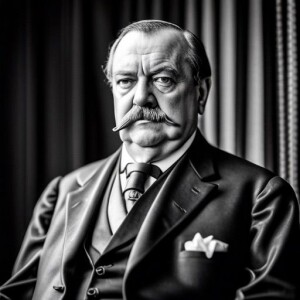Grover Cleveland was more than just another name in American political history. He was a trailblazer, a leader who dared to challenge the status quo and push for change. Born in 1837, Cleveland grew up in upstate New York and worked as a lawyer before entering politics. He served as the Sheriff of Erie County and later as the Mayor of Buffalo, paving the way for his future in national politics.
In 1884, Cleveland made history by becoming the 22nd President of the United States. He defeated James G. Blaine in a fiercely contested election, and immediately set to work on enacting his vision for the country. Cleveland’s first term was marked by his focus on civil service reform and his efforts to reduce tariffs. He also made headlines by successfully preventing the annexation of Hawaii and vetoing several bills that he deemed unconstitutional.
Despite his achievements, Cleveland faced his fair share of challenges during his time in office. He lost his bid for re-election in 1888 to Benjamin Harrison, but he didn’t let that setback stop him. In 1892, Cleveland ran again and won, becoming the only President to serve two non-consecutive terms. During his second term, he faced a severe economic depression and was criticized for his handling of the Pullman Strike. However, Cleveland never wavered in his commitment to civil service reform, and he vetoed more bills than any other President in history.
After leaving office, Cleveland retired to his home in New Jersey but remained an active force in politics until his death in 1908. He is remembered as a principled and independent leader who stood up for his beliefs and put the interests of the country above his own political ambitions. Grover Cleveland’s legacy lives on as a testament to the power of courage, conviction, and perseverance in the face of adversity.

